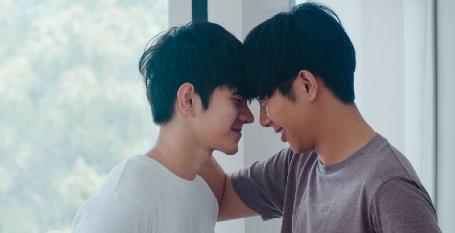A new survey undertaken by IPSOS has looked at sexuality across 30 countries - the results are pretty queer.
Across the 30 countries, an average of 8% of adults identified as somewhere within the LGBTQ umbrella. This is an increase on the numbers identified in previous surveys.
Unsurprisingly, those countires that demonstrated respect for LGBTQ equality reported higher numbers of adults identifying as LGBTQ.
Although LGBTQ people in Brazil face numerous challenges, Brazil was found to be the queerest country included in the survey, with 15% of adults identifying as LGBTQ.
The survey also found that people born after 1997 - referred to as Gen Z - are the queerest generation yet, with an average of 16% identifying as LGBTQ.












 Printable Version
Printable Version




















Reader's Comments
Chris
The Fridae account Hwangson89 is a scammer account using fake photos of a Korean idol actor/singer named Hyunjin.
The profile photo is stolen from https://www.pinterest.jp/lix__oi/hyunjin-%E3%83%92%E3%83%A7%E3%83%B3%E3%82%B8%E3%83%B3/
The 2nd photo is also stolen from this site. You'll clearly see these 2 photos at the link above.
The 3rd photo is a screenshot for the video at https://www.tiktok.com/@skzeditroom/video/7254442539418209579
The 4th photo is stolen from Hyunjin's Tiktok account profile photo at https://www.tiktok.com/@hyungjinmybf
The 5th photo is a screenshot from the video at https://www.youtube.com/shorts/VJF8sVV5nhc?app=desktop
This is the THIRD scammer with fake photos of Korean idols (& the 2nd one that I have reported) that has contacted me on Fridae, but administration does nothing about it!! Why don't you check these FAKE scammer profiles BEFORE allowing them on this site?
Several Fridae users (including myself) have commented that Fridae is becoming famous for fake scammers, & is becoming an unsafe site coz admin does nothing to protect genuine users from these scammers.
Please delete Hwangson89 account from this site before someone else is scammed on Fridae!
Please log in to use this feature.